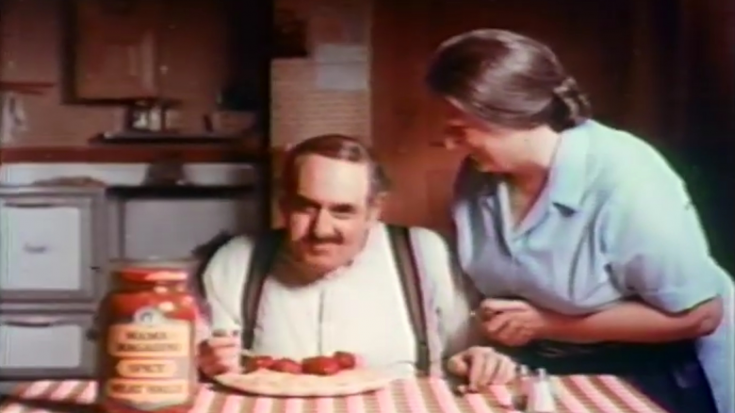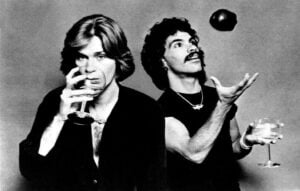9 Controversial 60s/70s Commercials You Won’t Believe Were Real

via wassupyall / YouTube
The 1960s were a unique time for television, with commercials reflecting the era’s bold attitudes and shifting social norms. Some ads, however, pushed boundaries in ways that seem shocking today. From strange claims to surprising visuals, here are nine real 1960s commercials that sparked controversy and left viewers stunned.
1. Tipalet Cigarettes – “Blow in Her Face”
Tipalet’s 1960s ad encouraged men to blow cigarette smoke into women’s faces, promising it would “make her love you.” The ad captured a strange and outdated view of relationships, combining smoking with flirtation in a way that feels absurd today.
At the time, cigarettes were marketed as part of a glamorous lifestyle, but this ad was criticized for its odd and invasive suggestion. Today, it serves as a reminder of how differently smoking and dating were seen in past decades.
2. Alka-Seltzer – “Mama Mia, That’s a Spicy Meatball”
This Alka-Seltzer commercial shows a man struggling to eat an overly spicy meatball, representing indigestion relief in a humorous way. Although memorable, the exaggerated Italian stereotype in the ad sparked backlash and didn’t age well over time.
The ad did bring laughs but also criticism for its stereotypical portrayal. Alka-Seltzer ads became famous for clever catchphrases, but this particular one drew attention for the wrong reasons.
3. Love Cosmetics – “Because Innocence is Sexier Than You Think”
Love Cosmetics released an ad suggesting “innocence” was a desirable quality that could be enhanced by their products. The commercial featured a young woman in soft lighting, emphasizing a look that was both youthful and alluring—a combination that didn’t sit well with many viewers.
The suggestive tone of the ad clashed with a growing awareness around how young women were portrayed in media. Although the brand sought to appeal to new trends, this ad felt uncomfortable to many.
4. Goodyear Tires – “Keep Her Safe”
This Goodyear ad showed a woman clinging to her husband, urging men to buy tires to “keep her safe.” The commercial’s message was that women relied on men to ensure their safety, an idea that played into stereotypes about gender roles.
Viewers found the ad outdated, as it emphasized dependence and ignored the growing independence of women. The ad’s language reflects attitudes of the time but now seems out of step with modern perspectives on safety and equality.
5. Bayer Heroin – Medicine for Kids
Before heroin was illegal, Bayer marketed it as a cough remedy for children in the early 20th century, and lingering ads like this one resurfaced in discussions during the ‘60s. Though no longer in use, people were shocked by ads that promoted a harmful substance as “kid-friendly.”
Bayer’s earlier heroin ads served as a strange reminder of how medical advice had drastically shifted. These ads, once common, highlighted an era when pharmaceutical practices were less regulated and showed the dangers of untested treatments.
6. Pall Mall Cigarettes – “For Better-Smoking Pleasure”
Pall Mall encouraged smokers to choose their brand for “better smoking pleasure,” often featuring doctors or scientists who seemingly supported it. Ads implied that smoking was socially and scientifically acceptable, despite mounting health concerns about cigarettes.
The use of authority figures to promote smoking sparked criticism and confusion, especially as the health risks became clearer. Pall Mall’s ads are now seen as part of a broader tobacco industry effort to downplay smoking’s dangers.
7. Lysol – “Feminine Hygiene”
Lysol ran ads in the ‘60s promoting its disinfectant as a feminine hygiene product, claiming it would keep women fresh. The product, however, was not safe for such use, and doctors warned of health risks. Still, the company continued its campaign.
The ad caused discomfort and raised concerns about how companies marketed products to women. Today, it’s used as an example of advertising’s sometimes-dangerous influence on personal health choices.
8. Dutch Masters Cigars – “Masterpiece in Every Puff”
Dutch Masters ads featured painters and artists enjoying cigars, positioning smoking as a refined and cultural habit. With scenes meant to make smoking seem sophisticated, the ads ignored the health consequences and portrayed cigars as an essential accessory for the intellectual elite.
The approach sparked backlash as it promoted cigar-smoking without caution. The ad’s attempt to link art with smoking didn’t age well, as health warnings on tobacco products became mandatory in later years.
9. Kellogg’s Pep Cereal – “More Pep for Your Step”
Pep cereal ads claimed that eating their product would give children extra energy, even including questionable claims about vitamins and health benefits. The ad showed children eating the cereal to keep them lively, which some parents felt was misleading and too good to be true.
While it wasn’t the most shocking ad, the exaggeration caught people’s attention and led to scrutiny about food advertising. Kellogg’s Pep remains an example of early advertising claims that stretched the truth.



















